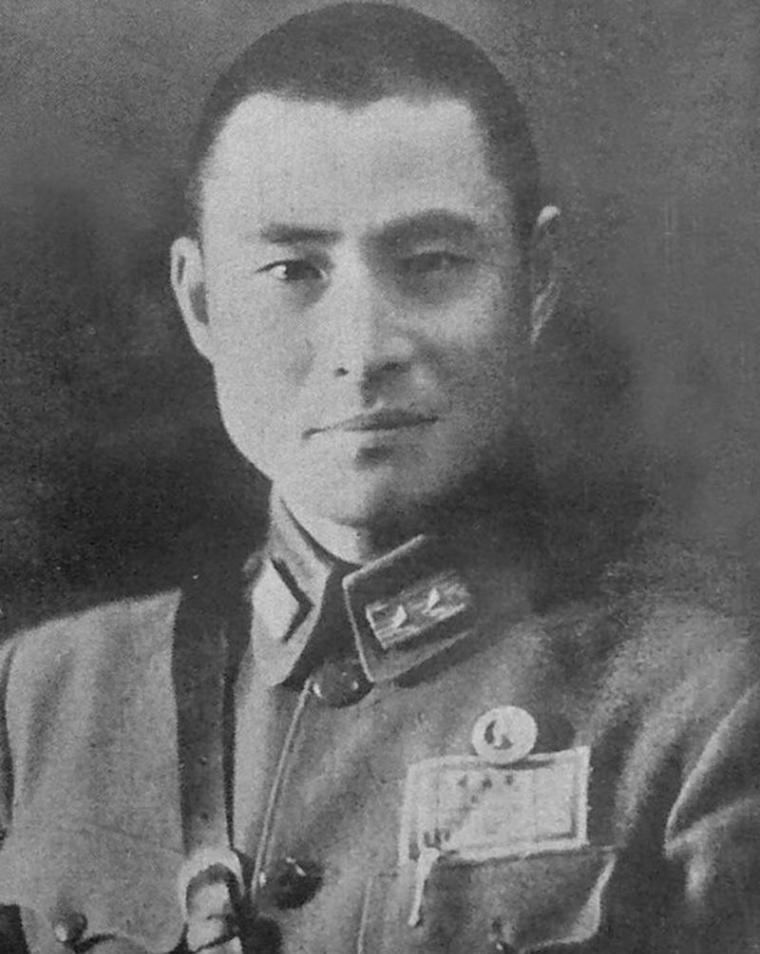There was a well-known war criminal in the Gongdelin War Criminals Management Center, who was arguably the most stubborn of the senior Kuomintang generals, and many even called him the "last war criminal", this person was Huang Wei, the former commander of the Kuomintang 12 Corps. On December 25, 1948, Huang Wei was captured by the People's Liberation Army during the Battle of Huaihai, and was soon imprisoned in the Gongdelin War Criminals Management Center for study and reform. However, Huang Wei was extremely stubborn and refused to accept reform, which led him to be pardoned until 1975, when the state granted amnesty to the last batch of war criminals.

After Huang Wei regained his freedom, he wanted to return to his hometown of Guixi, but he felt that he had spent half his life on horseback and had not returned to his hometown for decades, so he wanted to spend his old age in his hometown. Taking into account Huang Wei's actual situation, the organization deliberately left him in Beijing, and let Huang Wei serve as a commissioner of literature and history of the CPPCC and a member of the CPPCC Committee, and later let Huang Wei serve as a member of the Standing Committee of the CPPCC and enjoy the treatment of vice ministerial level.
During his tenure as a commissioner of literature and history of the Chinese People's Political Consultative Conference, Huang Wei wrote a lot of literature and history materials from the War of Resistance Against Japanese Aggression and the War of Liberation, and he has been conscientiously and conscientiously recalling the history that took place in that era. However, what happened to Huang Wei when he was the commissioner of literature and history of the Chinese People's Political Consultative Conference happened that made Huang Wei very angry? It turned out that Huang Wei had seen an article in the literature and history materials of the Chinese People's Political Consultative Conference called "Deng Yanda was killed by Chen Cheng's secret report." Huang Wei was particularly angry after reading this article, thinking that this was absolutely impossible.
Regarding the relationship between Chen Cheng and Deng Yanda, it is difficult for us to explain clearly in one or two sentences. Chen Cheng, a graduate of the Artillery Section of the Baoding Army Officer School, was too thin to enter the Whampoa Military Academy as an instructor, but Deng Yanda greatly admired Chen Cheng. With the help of Deng Yanda, Chen Cheng entered the Whampoa Military Academy as a trainee instructor, and gradually rose to prominence. Chen Cheng also regarded Deng Yanda as a benefactor, but later Deng Yanda became at odds with Chiang Kai-shek, gradually expelled from the core circle of power by Chiang Kai-shek, and was killed by Chiang Kai-shek in 1931.
On the other hand, Chen Cheng, after Deng Yanda's murder, gradually gained the reuse of Chiang Kai-shek, became one of Chiang Kai-shek's five tiger generals, and also established his own small faction "Civil Engineering Department", becoming one of Chiang Kai-shek's most trusted generals. Associating the previous relationship between Chen Cheng and Deng Yanda, the statement that "Deng Yanda was killed by Chen Cheng's informant" was circulated.
As we all know, Huang Wei was a general of Chen Cheng's "civil engineering department"; soon after graduating from the Whampoa Military Academy, he entered Chen Cheng's 11th Division, and under Chen Cheng's promotion, he successively served as the commander of the 11th Division, the commander of the 18th Army, and the officer to the deputy commander-in-chief of the joint logistics. Huang Wei also regarded Chen Cheng as a benefactor, and he once said: "Chen Cheng treats me like a mountain, not only taking care of me in the official arena, but also helping me financially."
Huang Wei regarded Chen Cheng as a benefactor, so in Huang Wei's eyes, Chen Cheng certainly could not betray Deng Yanda, so Huang Wei was particularly angry after seeing this article, he ignored his old age and physical decline, spent half a year investigating, took the initiative to collect information, contacted the old man who was still alive at the time, and personally visited many parties. After investigation, Huang Wei wrote an article that overturned the view that "Deng Yanda was killed by Chen Cheng's informant" and returned his benefactor's innocence.
According to the available information, Chen Cheng was indeed not the informant who betrayed Deng Yanda, and Chen Cheng has always regarded Deng Yanda as a benefactor. After Chiang Kai-shek arrested Deng Yanda, Chen Cheng deliberately pleaded with Chiang Kai-shek, hoping that Chiang Kai-shek would spare Deng Yanda. However, in the end, Chiang Kai-shek killed Deng Yanda.
On the other hand, Huang Wei is also an upright person, and he does not allow others to smear his benefactor. In order to restore the benefactor's innocence, Huang Wei spent half a year personally visiting despite his old age and frailty, and after investigation, wrote an article to wash away the grievances of the benefactor, which was really the work of the eldest husband.
Resources:
"Our Father- The Descendants of the Kuomintang Generals on the Mainland" Zhou Haibin